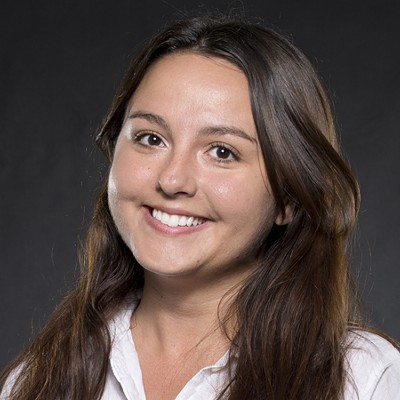Attitudes toward medical marijuana are shifting as more states pass laws recognizing it as a form of treatment — not a way to get high. But as Floridians gear up this November to vote on a constitutional amendment that would legalize curative cannabis, it seems that the City of Wilton Manors is scheming to keep it out.
A new ordinance that will go through its first reading at tonight’s commission meeting will place heavy restrictions on business owners looking to obtain a medical marijuana permit. If passed, it will impose a 1,000-foot buffer around daycares, churches, rehab facilities, and schools — leaving only a sliver of available property on the outskirts of town. Under its tenets, businesses can't open on Sunday and must close before 6 p.m. the rest of the week. Trash must be removed from the sidewalk twice a day and an "odor filtration" must be installed on the premises. In addition to 38 pages of restrictions outlined in the ordinance, more than a dozen words related to marijuana slang have been banned from operating names. Among them: “ganja,” “pot,” “smoke,” “weed,” and more obscure references like “laughing,” “wacky tabacky,” and “peyote.”
“It’s interesting that they’re treating this like delivering LSD or cocaine,” says Wilton Manors commissioner Julie Carson. “If medical marijuana may prove to be very helpful to residents in our community suffering from debilitating illnesses, why would we want to limit their access?”
Carson believes the City should proactively plan zoning ordinances to prepare for medical marijuana legalization. But after reading through the fine print and all the restrictions, she finds this iteration of the ordinance "onerous" and "ridiculous." She plans to challenge it at tonight's meeting.
"I want to ask the city attorney, 'What risk do we have if we are regulating something that is legal...?'" Carson says. "The bigger concern is, why are we spending so much time restricting the medical use of marijuana if there are people who need it?"
Wilton Manors is not the first place to try to pass an ordinance restricting the sale of medical marijuana. At least nine states including Michigan, Oregon, and California — either in whole or in part — have passed similar regulations that differ somewhat but generally include some sort of 500- to 1,000-foot ban around schools. Other specific restrictions like banning words for the operating name, the twice-a-day trash pickup, and the "odor filtration" system seem unique to Wilton Manors.
"It reminds me of the no-alcohol-on-Sunday law," Carson says. "And [the ban on specific words in the operating name] seems like a very harsh limitation on speech."
Carson believes the ordinance was drafted a year ago at the request of Mayor Gary Resnick and modeled after similar ordinances in other cities. She says she thought the ordinance was intended to regulate any potential medical marijuana retailers in the future — not to prohibit them from coming to Wilton Manors.
After Florida's Right to Try bill was signed into law last year, four dispensaries in Florida were given licenses to distribute low-THC cannabis. This week, a Tallahassee dispensary became the first in the state to start selling. In November, Floridians will vote for the second time since 2014 to pass a constitutional amendment to further legalize medical marijuana (not just the low-THC strain).
"Why should we limit access and force residents to go to Oakland Park or another city to treat their illness?" Carson says. "In fact, businesses can provide an economic incentive to our city."
According to the ordinance, "such [medical marijuana] businesses are inherently attractive targets for criminals, and it is therefore essential that the City limit the permissible scope of such uses and regulate them to ensure their compatibility with surrounding businesses and the community, and to protect and advance the public health, safety, and welfare."
This is the first reading of and public hearing for the ordinance. To be signed into law, it must be read a second time and pass a vote at another commission meeting.
[
{
"name": "GPT - Billboard - Slot Inline - Content - Labeled - No Desktop",
"component": "16971022",
"insertPoint": "2",
"requiredCountToDisplay": "2"
},{
"name": "Editor Picks",
"component": "15769925",
"insertPoint": "4",
"requiredCountToDisplay": "1"
},{
"name": "Inline Links",
"component": "16575154",
"insertPoint": "8th",
"startingPoint": 8,
"requiredCountToDisplay": "7",
"maxInsertions": 25
},{
"name": "GPT - Rectangle 2x - Slot Auto-select - Labeled",
"component": "15782206",
"insertPoint": "8th",
"startingPoint": 8,
"requiredCountToDisplay": "7",
"maxInsertions": 25
},{
"name": "Inline Links",
"component": "16575154",
"insertPoint": "8th",
"startingPoint": 12,
"requiredCountToDisplay": "11",
"maxInsertions": 25
},{
"name": "GPT - Leaderboard to Tower - Slot Auto-select - Labeled",
"component": "15782207",
"insertPoint": "8th",
"startingPoint": 12,
"requiredCountToDisplay": "11",
"maxInsertions": 25
}
]











